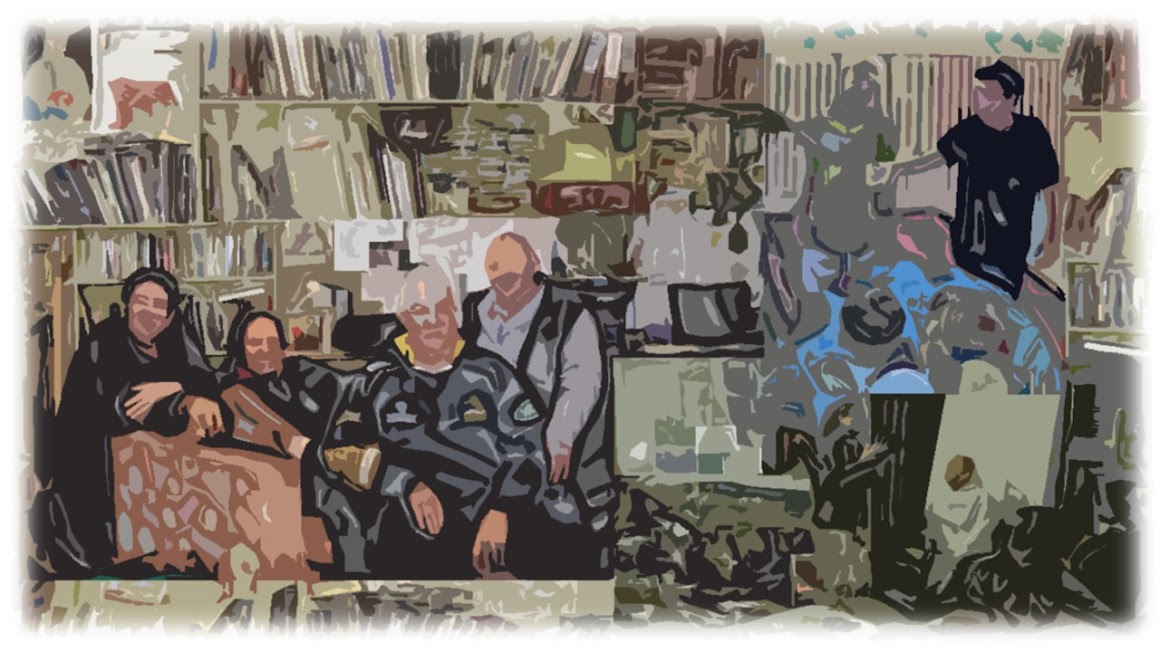The article examines the notion (now an ideology) that the State (now big government) can create a collectivist human Utopia.
He examines the polemical writings of immigrant Austrian economist F A Hayek in his book The Road To Serfdom (1944):
It went
through six printings in its first year, but its effect on majority opinion
was, for many years to come, negligible. Hayek believed that while intellectuals
in modern liberal democracies—those to whom he somewhat contemptuously referred
as the professional second hand dealers in ideas—did not usually have direct
access to power, the theories that they diffused among the population
ultimately had a profound, even determining, influence upon their society.
Intellectuals are of far greater importance than appears at first sight.
Hayek was
therefore alarmed at the general acceptance of collectivist arguments—or worse
still, assumptions—by British intellectuals of all classes. He had seen the
process—or thought he had seen it—before, in the German-speaking world from
which he came, and he feared that Britain would likewise slide down the
totalitarian path. Moreover, at the time he wrote, the “success” of the two
major totalitarian powers in Europe, Nazi Germany and Soviet Russia, seemed to
have justified the belief that a plan was necessary to coordinate human
activity toward a consciously chosen goal.
History has illustrated for us the pernicious
effects of these ‘successes’ and uncovered them as the grand lies they always
were, but even with the evidence provided by these ideological disasters, the cultural
elites of today still believe that they can erase history (Pomo deconstruction/Orwell’s
1984) and try again, this time successfully.
It truly represents the living definition of
madness: doing the same thing time after time and expecting a different result
each time.
Collectivist
thinking arose, according to Hayek, from impatience, a lack of historical
perspective, and an arrogant belief that, because we have made so much
technological progress, everything must be susceptible to human control. While
we take material advance for granted as soon as it occurs, we consider
remaining social problems as unprecedented and anomalous, and we propose
solutions that actually make more difficult further progress of the very kind
that we have forgotten ever happened. While everyone saw the misery the Great
Depression caused, for example, few realized that, even so, living standards
actually continued to rise for the majority. If we live entirely in the moment,
as if the world were created exactly as we now find it, we are almost bound to
propose solutions that bring even worse problems in their wake.
But as Dalrymple observes, it is the prophetic nature
of Hayek’s observations that seem to resonate over time and in particular our post-modern era:
The most
interesting aspect of Hayek’s book, however, is not his refutation of
collectivist ideas—which, necessary as it might have been at that moment, was
not by any means original. Rather, it is his observations of the moral and psychological
effects of the collectivist ideal that, 60 years later, capture the
imagination—mine, at least.
Hayek thought he had observed an important change in the character of the British people, as a result both of their collectivist aspirations and of such collectivist measures as had already been legislated. He noted, for example, a shift in the locus of people’s moral concern. Increasingly, it was the state of society or the world as a whole that engaged their moral passion, not their own conduct. “It is, however, more than doubtful whether a fifty years’ approach towards collectivism has raised our moral standards, or whether the change has not rather been in the opposite direction,” he wrote. “Though we are in the habit of priding ourselves on our more sensitive social conscience, it is by no means clear that this is justified by the practice of our individual conduct.” In fact, “It may even be . . . that the passion for collective action is a way in which we now without compunction collectively indulge in that selfishness which as individuals we had learnt a little to restrain.”
Thus, to take a trifling instance, it is the duty of the city council to keep the streets clean; therefore my own conduct in this regard is morally irrelevant—which no doubt explains why so many young Britons now leave a trail of litter behind them wherever they go. If the streets are filthy, it is the council’s fault. Indeed, if anything is wrong—for example, my unhealthy diet—it is someone else’s fault, and the job of the public power to correct. Hayek—with the perspective of a foreigner who had adopted England as his home—could perceive a further tendency that has become much more pronounced since then: “There is one aspect of the change in moral values brought about by the advance of collectivism which at the present time provides special food for thought. It is that the virtues which are held less and less in esteem and which consequently become rarer are precisely those on which the British people justly prided themselves and in which they were generally agreed to excel. The virtues possessed by the British people in a higher degree than most other people . . . were independence and self-reliance, individual initiative and local responsibility . . . non-interference with one’s neighbour and tolerance of the different and queer, respect for custom and tradition, and a healthy suspicion of power and authority.”This idea that government must take responsibility for all our failures, for all our irresponsibility's and for all of our needs, this is the most significant issue in Australia today and until or unless this illusion is shattered our culture will be the cause of its own demise.
Read the full article @: http://www.city-journal.org/html/15_2_oh_to_be.html

No comments:
Post a Comment